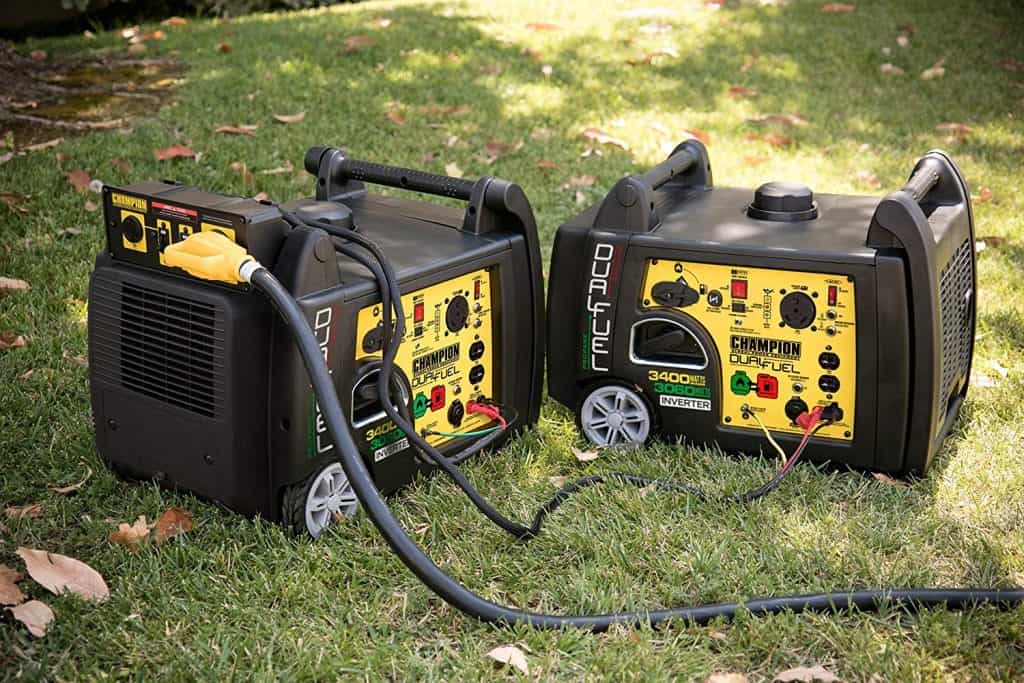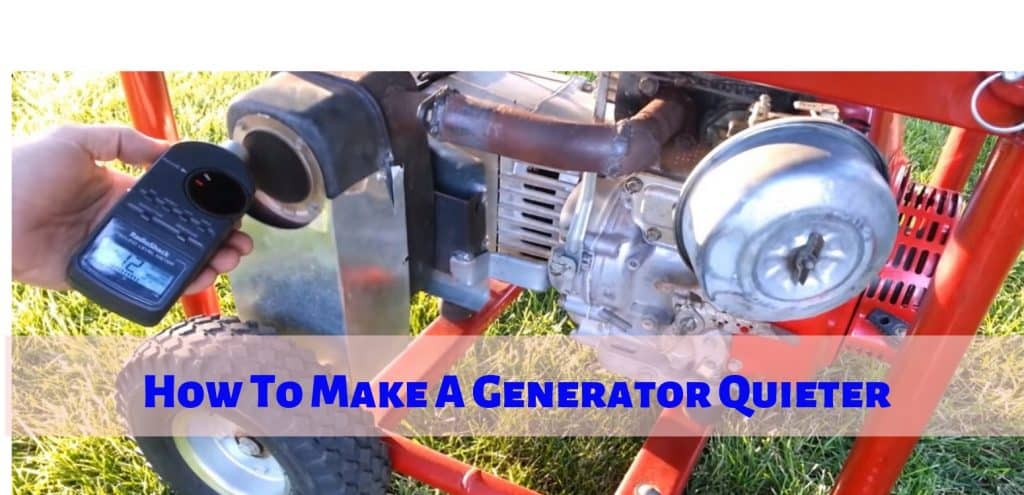How to Make a Generator Quieter?
Generators are a necessity in every modern home. Their benefits go beyond providing you with back up electricity, but also the peace of mind that comes with knowing that you have a solution in case of a power outage.
There’s a huge caveat, however, of owning of these units and that is the noise they generate.
When you are at the cabin enjoying the serenity of nature, there's little that can ruin your experience than the constant hymn of your generator.

Read more: How to Clean up a Generator Power?
Noise, while camping is an inconvenience, but when you are dealing with an emergency, the generator noise is exasperating and might even make you go nuts.
You do not need to deal with noise issues on an emergency.
My family loves camping and RVing, and for a long time, we had to tolerate the generator noise, but not until we came up with a solution.
And in this article, I’m going to show the tip and methods that you can use to make your generator quieter.
Table of Contents
1) Install Sound Deflectors
The location and trajectory path of the generator noise plays a significant role in the level of noise.
You can install a sound deflector to alter the direction of the noise. The purpose of the sound deflectors is to divert the noise from your spot.
While this method will not in any way make your generator quieter, it will certainly make the surrounding quiet. Though the sound will still get at you, it will do so on a lower impact.
Read more: How to Polarize a Generator?
2) Built an Enclosure for your Generator
An effective way of minimizing sound is by creating a sound barrier between you and the source of the sound.
A great way to do so is by building an enclosure for your generator.
Figuratively, this will entail building a box-like structure to enclose your generator.
Naturally, the best materials for building the structure are the soundproof materials.
While at it, it's essential that you do not forget the "roof" and ventilation. While creating a sound-proof barrier with no sound coming out would seem like a bright idea, it would result in heat build-up, and this can affect the generator in many ways.
In any case, concealing the generator is similar to covering it up with a blanket, which we strongly desist.
3) Move the Exhaust Pipes to a Vertical Position
Again, like the first method, we discussed, moving the venting pipes plays a crucial role in the level of noise.
The direction you place your venting pipes will determine the noise level. For instance, if you place the exhaust pipes horizontally, you’ll experience more noise as the sound is blown horizontally.
To dampen the noise, you need to place the venting pipes facing vertically, and this will help the noise dissipate upwards away from your surroundings.
4) Replace the Muffler on the Generator
The exhaust pipes and the motors are the loudest parts of a generator.
Now, while you can do something about the exhaust pipes, the motor is as it is, and there is nothing much you can do about it; in any case, if you don’t like the motor, you will need to get a new one.
Back to the exhaust pipe, there are a few adjustments that you can make to make your generator quieter.
We have already discussed positioning the pipes horizontally, and the next adjustment to make is to get a big muffler on the pipes.
A muffler plays the role of muffling sound, and getting a bigger muffler will greatly help in dampening the generator noise.
5) Water Bucket Trick
Placing your power generator and water does not sound like the greatest idea, or does it?
But there is a reason behind it; water can be used to dampen noise.
To do it, you need to dip the loose end of a pipe connected to your generator exhaust into water.
Given that everything sound muffled under water, the noise generated by the exhaust pipes will get suppressed by the water.
However, it’s crucial that you are careful to ensure that water won’t travel from the bucket through the pipe into the engine.
To do so, you will have to find the highest point along with the hose, and just above the entrance to the exhaust pipe poke a small hole in the hose to let the water out if it starts to climb. A safe and effective way of making sure that doesn't happen is by simply placing the generator on higher ground that the water bucket.
6) Set your Generator on a Rubber Feet or Platform
Setting your generator on the rubber is a good way to lessen the vibrations your generator gives off.
You would not want to place your generator on hard surfaces such as concrete, or wooden board as they help to amplify the sound.
Rather, place your generator on the ground where vibrations will get absorbed by the earth.
You can even take your vibration-dampening game higher by opting for anti-vibration mats rather than rubber.
Still, you can improvise and use other materials such as old blankets or clothe provided they help to disorient the sound. However, if your generator overheats easily, you would want to stick to rubber mats or foams.
7) Turn Down the Power
The level of noise on your generator is affected by the power output or rather the power it supplies.
You can, therefore, curb the noise generated by reducing how much power it generates. The tradeoff, however, is that you will only power selected appliances.
8) Place the Generator Further from You
If you have read our reviews on the best generators, you have probably come across noise ratings in decibels in all the models.
Again, you have discovered that the noise level is measured using a certain set distance and in most cases, 7 meters or 23 feet. For instance, if you see a generator with a noise rating of 54Dba, it means the noise level is at 54 decibels from 23 feet.
There is a reason the sound rating was taken at 23 feet. Now, while quiet generators are regarded as quieter, it's not exactly the case. Do not get me wrong. The products with lesser noise decibels are quieter than those with higher. I'm only saying that the manufacturer assumes that you will keep the unit farther away or a distance from where you are.
While putting a generator near you sounds like a great idea, placing it further will allow you to have a good rest with a minimal buzz in the distance.
9) Buy a Quiet Generator
The best ways to ensure you don’t have to deal with generator noise is purchasing one that is not noisy in the first place. Essentially you would want to look for generators with sound dampening features such as mufflers, and ideally, they should be within the 4,000watts range.
Conclusion
Now that you know how to make your generator less quiet, your camping trips will just be about you, your family and great outdoors, devoid of distractions.

